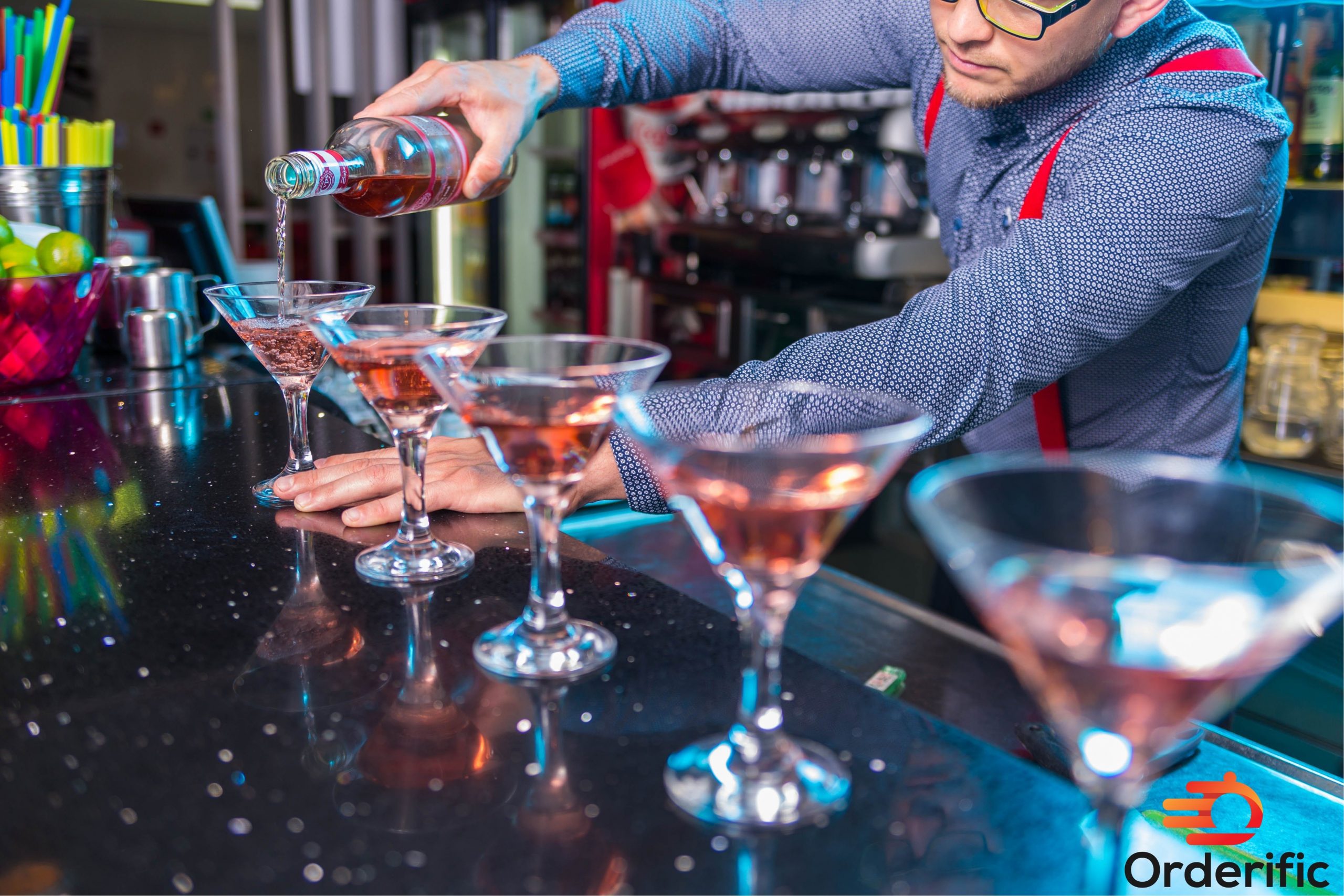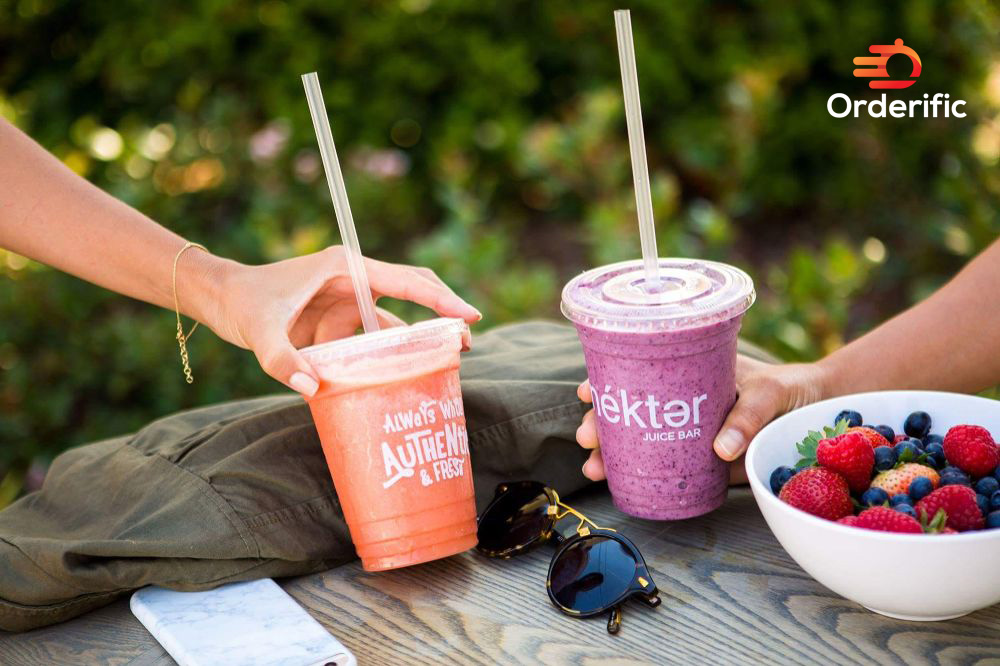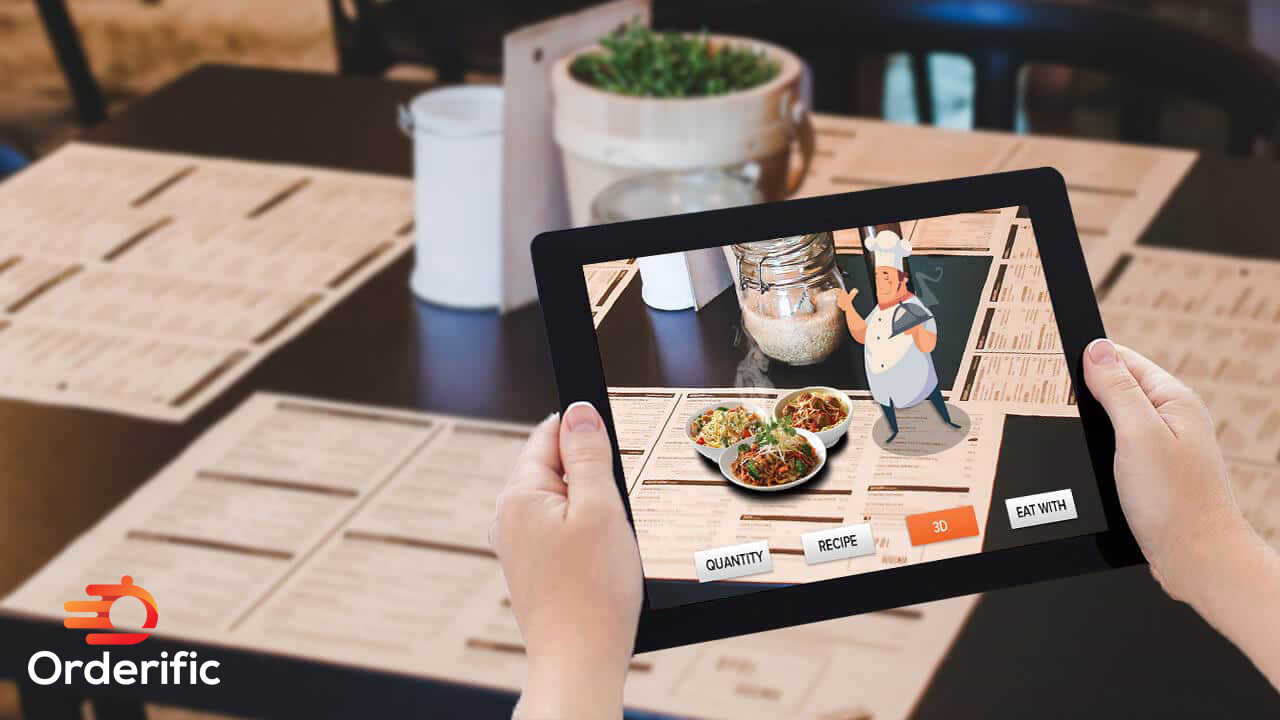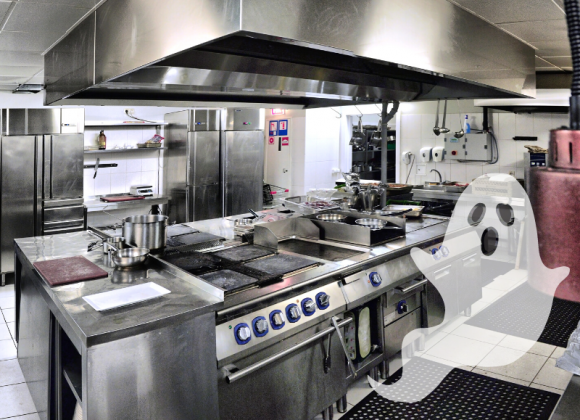Introduction
Establishing an effective bartender training program is essential to ensure that your team possesses the necessary skills, knowledge, and capability to provide exceptional customer service. An effective bartender training program serves as the cornerstone for cultivating a skilled and knowledgeable team capable of delivering exceptional customer service. By investing in comprehensive training initiatives, you not only equip your staff with the requisite skills for crafting exquisite beverages but also instill a deep understanding of customer interactions, creating an atmosphere of hospitality excellence. This foundational training ensures that your bartenders are not only adept at mixology but are also attuned to the nuances of responsible alcohol service, customer preferences, and the art of fostering a welcoming environment. In essence, the training program becomes a catalyst for elevating the overall customer experience within your establishment.
Train With a Restaurant Employee Handbook
Embarking on a journey to run a great bartender training program involves laying a solid foundation, and a key component of this is the meticulous crafting of a comprehensive restaurant employee handbook. A restaurant employee handbook not only imparts essential knowledge about the composition of various drinks but also emphasizes responsible alcohol service, a cornerstone of the hospitality industry. By weaving in practical scenarios and interactive elements, the handbook transforms the learning process into an engaging experience, allowing trainees to grasp concepts effortlessly.
Moreover, the handbook serves as a perpetual reference, empowering budding bartenders to continually hone their skills and stay abreast of evolving mixology trends. As an indispensable tool in the bartender training arsenal, this manual becomes a trusted companion, propelling trainees towards becoming consummate professionals who not only craft exquisite drinks but also excel in delivering unparalleled customer service.
Train With Bartender Certifications
Running an outstanding bartender training program involves a strategic focus on professional development, and one impactful avenue is through bartender certifications. These certifications serve as badges of expertise, solidifying the foundation of bartender training by encompassing essential elements such as alcohol knowledge, cocktail mastery, and exemplary customer service.
Bartender training, enriched by certifications, delves into the art and science of bartending, ensuring a comprehensive understanding of drink composition and presentation. Trainees undergo specialized courses that not only refine their skills in crafting cocktails but also emphasize responsible alcohol service—a vital aspect of maintaining a safe and thriving establishment.
Beyond the technical aspects, certifications infuse a sense of professionalism, molding aspiring bartenders into consummate professionals. A bartender certification appreciates the nuances and the importance of the pivotal role played bartenders. Adding certifications will improve the skillset of your employees and also the reputaion of your establishment.
Train With Jiggers
In the realm of crafting a stellar bartender training program, integrating the use of jiggers becomes a game-changing element. Precision is the heartbeat of mixology, and incorporating jiggers into bartender training ensures not only the accurate measurement of ingredients but also cultivates a keen sense of professionalism.
Bartender training, underscored by the utilization of jiggers, hones the skills necessary for crafting impeccable cocktails. Trainees learn the art of measurement, understanding how the precise balance of alcohol and mixers contributes to the symphony of flavors in each drink. This meticulous approach not only elevates the quality of the beverages served but also instills a sense of mastery in the craft of bartending.
Beyond the technicalities, incorporating jiggers into the training regimen reinforces the commitment to exceptional customer service. By delivering consistently measured drinks, bartenders convey reliability and professionalism, enhancing the overall customer experience. This attention to detail is a hallmark of a professional bartender, setting the stage for an establishment known for its dedication to excellence.
In essence, training with jiggers transforms the learning experience, shaping aspiring bartenders into precision-driven mixologists capable of delivering top-notch cocktails with flair. It’s not just about pouring drinks; it’s about creating a symphony of flavors that delights the palate and leaves a lasting impression—an essential element in the art of running a great bartender training program.
Train for Free-Pouring Skills
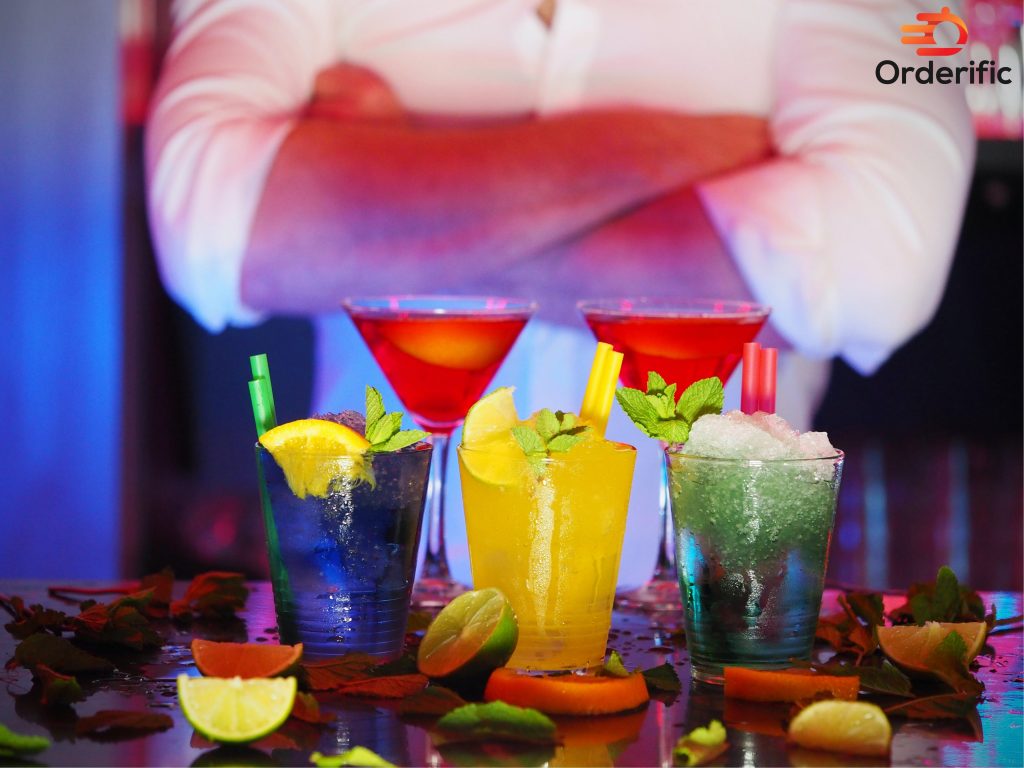
In the dynamic landscape of bartender training, mastering the art of free-pouring is an indispensable skill that sets the stage for a truly exceptional experience at the bar. Unlike measured techniques, free-pouring demands a keen eye, a steady hand, and a deep understanding of mixology, making it a crucial component in the arsenal of any professional bartender.
Bartender training programs that focus on honing free-pouring skills go beyond the traditional measured pour, cultivating a sense of flair and creativity. This skill is particularly valuable in real bar scenarios where speed and precision are paramount, catering to high-volume demands during bustling corporate events or vibrant restaurant service hours.
Free-pouring training not only emphasizes the physical act of pouring but also integrates elements of flair bartending, adding an entertaining dimension to the craft. It’s about more than just delivering drinks; it’s a performance that captivates patrons and adds vibrancy to the atmosphere.
Moreover, incorporating free-pouring into bartender training programs bridges the gap between theoretical knowledge and practical application. Trainees gain a real-world understanding of the dynamics of a busy bar, enabling them to navigate high-pressure situations with finesse while maintaining the highest standards of customer service.
In essence, free-pouring skills are the hallmark of a professional bartender who can seamlessly blend technique, speed, and showmanship to create an unforgettable experience for patrons in diverse settings, from the corporate event scene to the fast-paced ambiance of a bustling restaurant.
Host In-House Tastings and History Lessons
Elevating your bartender training program involves going beyond the bar tools and into the realms of flavor exploration and cocktail history. Hosting in-house tastings and history lessons not only enriches the knowledge base of aspiring bartenders but also adds a layer of sophistication to their craft.
Bartender training, when complemented by in-house tastings, transforms the learning environment into a sensory experience. Trainees delve into the nuances of different alcohols, discovering the intricate flavors that define each spirit. This hands-on approach not only refines the palate but also fosters a deep appreciation for the diverse ingredients used in crafting cocktails.
Simultaneously, infusing history lessons into the training curriculum provides context and narrative to the art of bartending. Understanding the origins of classic cocktails and the evolution of mixology not only imparts cultural significance but also equips bartenders with compelling stories to share with patrons. This additional layer of knowledge enhances customer engagement and contributes to a more immersive drinking experience.
For corporate events or bustling restaurant settings, this training approach adds a unique touch. Bartenders, armed with historical insights and a refined palate, become adept at recommending drinks tailored to individual preferences, contributing to the establishment’s reputation for not just serving drinks but curating memorable experiences. In-house tastings and history lessons thus become a key ingredient in the recipe for running a truly exceptional bartender training program.
Train for Health and Safety
Beyond the finesse of mixing cocktails and the artistry of flair bartending, instilling a robust understanding of health and safety practices is crucial for the well-being of both customers and staff. Bartender training should encompass alcohol server training that goes beyond merely checking IDs. It should delve into recognizing signs of intoxication, understanding alcohol-related risks, and implementing responsible service practices. This not only ensures legal compliance but also establishes a foundation for conscientious customer service.
In a real bar scenario, especially during high-volume bartender training or corporate events, the emphasis on health and safety becomes pivotal. Bartenders equipped with the knowledge of proper handling, storage, and disposal of alcohol contribute to a secure environment. Moreover, this training instills an awareness of emergency procedures, ensuring swift and effective responses in case of unforeseen incidents.
For restaurant training programs, health and safety extend to hygiene practices, from handwashing to equipment sanitation. Emphasizing these aspects not only meets regulatory standards but also safeguards the well-being of customers and staff alike. In essence, health and safety training are integral components that fortify the professionalism of bartenders, contributing to the overall excellence of the establishment’s service.
Train With Books
In the quest to establish an exceptional bartender training program, incorporating the use of books is a timeless and invaluable approach. Beyond the hands-on techniques of mixology and the dynamics of a real bar, training with books offers an in-depth and comprehensive source of knowledge that shapes not just skilled bartenders, but true professionals.
Bartender training, enriched by carefully curated books, opens a portal to the vast world of cocktails, customer service, and the art of bartending. These literary resources provide a foundation for understanding the history of drinks, the science behind mixology, and the nuances of creating memorable customer experiences.
For those engaging in corporate events or high-volume bartender training, the insights gleaned from authoritative texts become a reservoir of expertise. Bartenders equipped with the wisdom garnered from books can navigate diverse customer preferences and demands with confidence, delivering top-notch service.
Moreover, books on alcohol server training contribute to the responsible service ethos, emphasizing legal and ethical considerations. By integrating these literary resources into the training regimen, aspiring bartenders not only gain practical skills but also cultivate a deeper appreciation for their craft. In essence, training with books transcends the bar counter, transforming novices into knowledgeable and adept professionals who understand that true mastery in bartending goes hand in hand with continuous learning.
Train With Quizzes
Quizzes infuse an element of gamification, making the learning process dynamic and enjoyable. Bartender training, intertwined with quizzes, transforms the educational experience into an interactive journey. These quizzes can cover a spectrum of topics, from drink recipes and mixology techniques to customer service scenarios and alcohol server training. They not only reinforce essential information but also challenge trainees to think critically and apply their knowledge in diverse situations.
Especially beneficial for high-volume bartender training and corporate events, quizzes become a versatile tool. They allow bartenders to hone their skills in a simulated environment, preparing them for the fast-paced and dynamic nature of real bar scenarios. Moreover, incorporating flair bartending challenges into quizzes adds an entertaining dimension, fostering camaraderie and team spirit among trainees.
In essence, training with quizzes injects an element of fun into the learning process, ensuring that aspiring bartenders not only grasp the theoretical aspects of bartending but also develop the agility and problem-solving skills needed to thrive in diverse and challenging settings.
Train to Carry Drinks
Mastering the art of carrying drinks is not just a practical skill but a crucial element that contributes to the seamless and efficient operation of a bar. Training aspiring bartenders in this often-overlooked aspect ensures that they not only craft exceptional cocktails but also deliver them to customers with finesse.
Bartender training programs focused on carrying drinks go beyond the basics, incorporating techniques that balance speed, stability, and presentation. This skill becomes particularly vital in high-volume bartender training scenarios and during corporate events where the ability to navigate a bustling environment while delivering drinks promptly is essential.
Additionally, flair bartending elements can be integrated into this training, transforming the act of carrying drinks into a visually engaging performance. In a real bar setting, the proficiency in carrying drinks contributes to the overall efficiency of service, allowing bartenders to cater to the needs of customers in a timely and impressive manner.
Ultimately, the emphasis on training to carry drinks adds a layer of professionalism to bartending skills, ensuring that each cocktail not only tastes exceptional but is also delivered to customers with a level of grace and efficiency that defines a truly professional bartender.
Train for Food and Drink Pairing
Bartender training programs that incorporate food and drink pairing elevate the craft by emphasizing the synergy between cocktails and culinary offerings. Trainees delve into the art of balancing flavors, understanding how the characteristics of different drinks complement or contrast with various dishes. This expertise not only enhances the customer’s palate but also contributes to a memorable and cohesive dining experience.
Especially relevant for restaurant training programs and corporate events, where patrons seek a complete gastronomic journey, this training ensures that bartenders become adept at recommending cocktails that elevate the flavors of the cuisine. It adds a sophisticated touch to the service, establishing the bartender as a key player in curating an unforgettable dining affair.
Train for Tech
Incorporating technology into bartender training programs is a strategic move that enhances efficiency and elevates customer service. Training for tech equips bartenders with the skills to navigate digital tools, ensuring a seamless blend of tradition and innovation behind the bar.
Bartender training programs focused on tech integration introduce trainees to point-of-sale (POS) systems, inventory management software, and digital ordering platforms. This not only streamlines operations in a real bar scenario but also contributes to the overall professionalism of the establishment.
In essence, incorporating tech into bartender training is a forward-thinking approach that aligns with the demands of the contemporary bar scene. It transforms bartenders into tech-savvy professionals, enhancing their capabilities and ensuring that the establishment stays at the forefront of industry innovation.
Learn From Bar Blogs and Websites
Dive into the wealth of knowledge available online by encouraging aspiring bartenders to learn from reputable bar blogs and websites. These digital resources serve as valuable supplements to a comprehensive bartender training program, offering insights into the latest mixology trends, drink recipes, and industry best practices. From expert tips on flair bartending to in-depth guides on alcohol server training, these online platforms provide a dynamic and constantly updated source of information. By incorporating this digital dimension into your training program, bartenders gain access to a diverse range of perspectives, ensuring they stay well-informed and adaptable in the ever-evolving world of bartending.
Know the Location of Liquor and Glasses
A fundamental aspect of a great bartender training program is instilling a profound familiarity with the layout of the bar. Trainees should master the strategic organization of liquor bottles and glassware, ensuring seamless and efficient service. Understanding the spatial arrangement of spirits not only expedites drink preparation but also enhances the bartender’s ability to engage with customers. This knowledge becomes especially crucial during high-volume bartender training and real bar scenarios, where quick access to ingredients is paramount. By engraining this spatial awareness, aspiring bartenders cultivate a sense of confidence and agility, contributing to a well-orchestrated and customer-centric bar environment.
Listen to Bartending Podcasts
Embrace the auditory dimension of learning by encouraging bartender trainees to tune into bartending podcasts. These audio resources provide an immersive and convenient way to stay abreast of industry trends, mixology techniques, and customer service insights. From in-depth discussions on cocktails to expert interviews with seasoned professionals, bartending podcasts offer a dynamic supplement to traditional training. By incorporating these auditory gems, aspiring bartenders can absorb valuable knowledge during commutes, workouts, or downtime, ensuring continuous learning and a well-rounded skill set.
Know When to Cut Someone Off
An integral facet of a comprehensive bartender training program is instilling the crucial skill of recognizing when to cut off a customer. Trainees must develop a keen awareness of signs of intoxication, behavioral cues, and legal considerations. Understanding the responsibility of alcohol service is paramount to maintaining a safe and welcoming environment. This skill not only aligns with alcohol server training standards but also underscores the importance of prioritizing customer safety. By imparting the ability to make informed decisions regarding when to cease serving alcohol, bartenders contribute to responsible practices and the overall well-being of patrons.
Train for Customer Interaction
Enhance your bartender training program by placing a strong emphasis on customer interaction skills. Beyond mastering mixology and drink preparation, trainees must develop the art of engaging with patrons. This includes active listening, interpreting customer preferences, and adeptly navigating diverse personalities. Customer service is at the heart of a great bartender, and honing these interpersonal skills ensures a memorable and enjoyable experience for every guest. By cultivating a welcoming and friendly atmosphere through effective customer interaction, bartenders not only build loyalty but also contribute significantly to the overall success and reputation of the establishment.
Join the United States Bartenders’ Guild
Joining a professional organization like the United States Bartenders’ Guild (USBG) can be a significant step in a bartender’s career. Improve the credibility and expertise of your bartender training program by encouraging participation in the United States Bartenders’ Guild (USBG). Joining this prestigious guild opens doors to a wealth of industry resources, networking opportunities, and ongoing education. Members gain access to workshops, events, and the collective knowledge of seasoned professionals. Being part of the USBG not only fosters a sense of community but also keeps bartenders abreast of the latest trends and innovations. This affiliation adds a distinguished touch to your training program, ensuring that your bartenders are connected to a broader spectrum of industry insights and support.
Train for Financial Literacy
In the realm of crafting a comprehensive bartender training program, don’t overlook the critical aspect of financial literacy. Equip aspiring bartenders with the knowledge and skills necessary to manage the financial aspects of the bar effectively. This includes understanding inventory costs, pricing strategies, and budgeting for events. Financial literacy training ensures that bartenders contribute to the profitability of the establishment by minimizing waste, optimizing pricing, and making informed decisions regarding promotions or discounts.
Furthermore, financial literacy extends to personal financial management. Imparting the importance of budgeting, saving, and understanding income streams empowers bartenders to navigate their financial futures successfully. By integrating financial literacy into the training curriculum, you not only enhance the business acumen of your bartenders but also contribute to their long-term financial well-being, fostering a more resilient and financially savvy team.
Conclusion
In conclusion, running a great bartender training program necessitates a multifaceted approach. Beyond mastering mixology and service techniques, it involves embracing technology, fostering financial literacy, and promoting continuous learning through podcasts, blogs, and industry affiliations. Training for customer interaction, responsible alcohol service, and even spatial awareness within the bar setting adds layers of professionalism. Encouraging participation in organizations like the United States Bartenders’ Guild further elevates expertise. The integration of these diverse elements ensures a well-rounded, adaptable, and customer-focused bartender team, positioning your establishment at the forefront of hospitality excellence in a dynamic and competitive industry. At Orderific, you get the best ideas an opportunities to run a successfull bartending program. Book a demo with Orderific for success in the exciting world of bartending. Book Your Demo Today!
FAQs
What essential skills and knowledge are covered in bartender training programs?
Bartender training programs cover a range of skills including mixology, customer service, technology use, understanding laws, financial literacy, and knowledge of current trends.
How do bartender training courses prepare individuals for real-world scenarios and customer interactions?
Bartender training courses use hands-on experience, role-play scenarios, and customer service training to prepare students for real-world customer interactions.
What role does bartender training play in ensuring responsible alcohol service and compliance?
Bartender training enforces responsible alcohol service by teaching students to recognize signs of intoxication and understand the legal and personal consequences of over-serving.
How do aspiring bartenders benefit from completing certified bartender training?
Completing certified bartender training equips them with professional skills, industry knowledge, and credibility, boosting their employability and career prospects.


